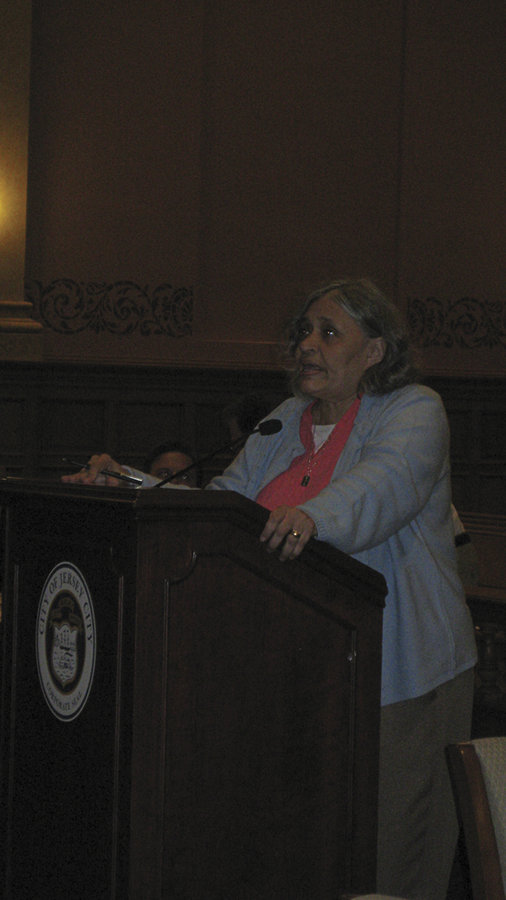As expected, the City Council on Wednesday unanimously approved the once-controversial McGinley Square East Redevelopment East Plan, a plan that will overhaul three city blocks in an attempt to revitalize an economically stagnant neighborhood south of Journal Square.
Wednesday’s adoption of the revised redevelopment plan came two weeks after the council recognized McGinley Square East as an area in need of rehabilitation and put to rest the possibility of eminent domain being used to force area residents from their homes.
Three months ago, controversy surrounding the possible use of eminent domain as part of the redevelopment plan threatened to derail it after residents in the area were warned their homes could be condemned so the plan could move forward. They protested, and the city changed its plan.
“We’re still discussing whether we’re going to apply for an abatement.” – Gary Flocco
____________
Beginning in the 1970s, the city used payments in lieu of taxes (PILOTs), otherwise known as tax abatement agreements, to entice developers to build in neighborhoods that were in need of urban renewal. Sometimes, the developers ended up paying almost as much as in regular taxes. But typically abatements amount to a significant reduction in property taxes since the annual amount to be paid by the developer is pre-determined, and not subject to annual fluctuations in the tax rate.
“What I would like to know is how much of this project will be tax abated,” homeowner Yvonne Balcer, who has often questioned the use of such tax breaks in Jersey City, asked the council Wednesday. While generally supportive of the McGinley Square plan, Balcer questioned why the city’s development boom – even in the midst of the recession and housing crisis – hasn’t translated into lower taxes for residents.
Encouraging development, off the waterfront
With PILOT agreements, a developer pays an annual fee to the city in lieu of standard property taxes that are divided among the city, county, and local school district. The city likes abatement agreements because it gets to keep much of the revenue collected from abated properties, but many residents argue that regular taxpayers have to bear more of the burden of county and school taxes.
Abatement agreements are legal under state law. In Hudson County, developers that receive them still pay a nominal fee to the county.
Originally, abatements were used to lure developers to blighted sections of the city that had been abandoned by business and commerce. But Jersey City granted abatements to many waterfront developments well into the 1990s and 2000s, spurring more controversy.
With little space left for development along the waterfront, city officials admit they are eagerly looking for projects that will help redevelop other Jersey City communities.
The McGinley Square East Redevelopment Plan, drafted by the private development firm Corvus and the Jersey City Division of Planning, is considered a project that can revitalize McGinley Square and eventually spur the economic redevelopment of the Journal Square area.
Historically, both Journal Square and McGinley Square were vibrant communities and economic hubs in Jersey City. Over the past 25 years, however, these areas have lost much of their former luster, which the city hopes to restore with the help of this redevelopment plan.
Under plans for the area, three city blocks redeveloped to include new commercial and residential space. These three blocks are bounded by Bergen Avenue, Mercer Street, Jordan, Monticello Avenue, Storms Avenue, and Montgomery Street, and Nevins.
The new development will include market rate and workforce housing, office space, new retail, restaurants, bars, nightclubs, and theaters, in addition to museums and art galleries. The plan also includes new parking to accommodate the expected influx in population.
No abatement application, yet
Despite the goals of the redevelopment plan, Balcer asked the council, “When will you put the taxpayers first? Why is it that with all the development we have in this city, taxes have only gone up, not down? Ratable property in this city has gone down. So, I want to know, will project be tax abated and, if so, for how many years?”
The council routinely approves abatements that can last as few as five years and as many as 30 years.
“There is at present no outstanding application [for an abatement] before us,” Ward A Councilman Michael Sottolano responded.
When asked by the Reporter whether Corvus would seek an abatement, Managing Director Gary Flocco said, “We’re still discussing whether we’re going to apply for an abatement. We will certainly consider it. But I want to bring out one point. Two-thirds of the property right now is not paying any real estate taxes because it’s either owned by a religious organization or a 501(c)(3). So, even with an abatement, if we go that route, would still be more taxes than what’s being paid to the city now.”
The tax exempt land Flocco referred to is owned by St. Peter’s College. As an educational institution, St. Peter’s is a nonprofit entity. As such, depending on how the school uses its land, the property is tax exempt.
Under the McGinley Square East Redevelopment Plan, some St. Peter’s-owned land will be redeveloped for commercial purposes and will thus become subject to property taxes.
E-mail E. Assata Wright at awright@hudsonreporter.com.
